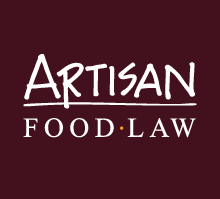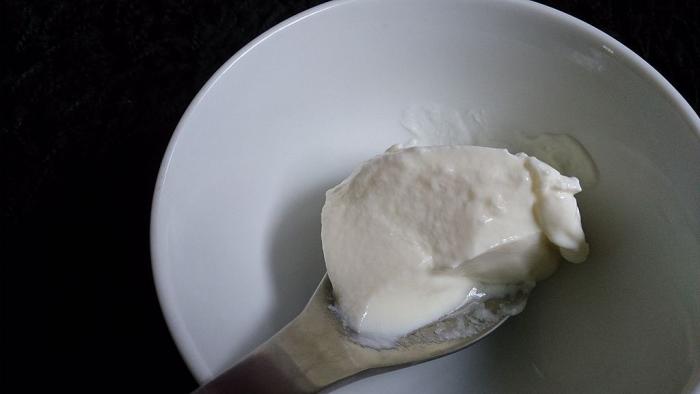The battle for Greek yoghurt – Chobani passed off
Sorry Chobani, I always understood ‘Greek yoghurt’ came from Greece, that’s why we have ‘Greek style yoghurt’. Chobani’s views about what people think are, like its yoghurt, a US import.
FAGE began producing yoghurt in the late 1920s and since the mid-1980s has imported TOTAL yoghurt, the brand name used in the UK, from Greece. FAGE accounts for 95% of all Greek yoghurt sold in the UK. The remaining 5% being mainly Tesco and Asda own-label Greek yoghurt also imported from Greece. The widely available ‘Greek style yoghurts’ retail at a substantially cheaper price.
It was almost a year ago that the High Court provided an instructive lesson in the history of Greek yoghurt. FAGE UK Limited brought legal proceedings against newcomer Chobani UK Limited for passing off its yoghurt as ‘Greek yoghurt’.
The background to the case was covered last April, but yesterday, on 28 January, the Court of Appeal had its say and the three judges unanimously backed FAGE in what can only be described as a resounding endorsement of Briggs J’s judgement last March.
Passing off is one of the oldest contemporary legal remedies available to protect a trader from a competitor passing off their goods as those of the trader. In order to succeed, as in all such actions, FAGE had to establish three things: goodwill, misrepresentation and damage. This was a case of ‘extended passing off’ meaning Chobani did not attempt to copy Fage’s distinctive packaging, but used the distinctive description ‘Greek yoghurt’ when the yoghurt did not in fact come from Greece. In essence the case came down to whether or not there had been a misrepresentation which misled the public as to the true origin of the yoghurt.
Chobani also sought to raise a new argument in the appeal, ‘Greek yoghurt’ is an EU protected food name (PDO and PGI) and Regulation (EU) 1151/2012, which regulates such names, prevented the court from granting relief other than in accordance with the provisions of the Regulation.
In court FAGE argued that all, or substantially all, yoghurt sold in the UK since 1983 as ‘Greek yoghurt’ had been made in Greece using a traditional Greek process whereby cows’ milk is strained so as to remove the watery whey and contained no added sugar, sweeteners, non-milk thickeners or other additives. All other yoghurts had been sold as ‘Greek style yoghurt’.
Chobani arrived on the scene in 2012 and started selling ‘Greek yoghurt’ made in the US having first been warned by their own advisors that, in the UK, this means made in Greece. There is a touch of irony in the situation in that FAGE also sell Greek yoghurt in the US – but it’s not made in Greece! All a question of playing by the rules.
Chobani, for their part, argued that ‘Greek yoghurt’ was a generic term apt to describe a range of products including their own yoghurt and was not sufficiently distinctive of a defined category of goods.
The Court of Appeal found that Briggs J had in all material respects got it right:
Briggs J found that a substantial proportion of those persons in the UK who bought Greek yoghurt thought that it was made in Greece and further, that this mattered to them such that the use of the phrase Greek yoghurt to describe yoghurt not made in Greece involved a material misrepresentation.
In a 49 page judgement providing chapter and verse in support of the conclusions Briggs J reached, Kitchin LJ was quite blunt in his assessment:
What mattered was that the product of a particular character or composition had been marketed under a descriptive name, and under that name had gained a public reputation which distinguished it from competing products of different compositions.
…
Here the use of the phrase by Chobani in relation to yoghurt not made in Greece is calculated to cause deception and confusion and to lead members of the public to buy it thinking they are buying the genuine article, that is to say yoghurt having the characteristics with which they are familiar and which has been made in Greece. It is an activity upon which Chobani has embarked with the intention of taking advantage of the cachet attaching to the phrase which has been generated by FAGE and other traders, and so selling its product at the premium price which Greek yoghurt commands.
When it came to the effect of Regulation (EU) 1151/2012, Kitchin LJ was quite unable to accept the argument made. The Regulation does not preclude systems of national protection for geographical denominations which do not fall within its scope and compliant with both EU and international obligations.
The appeal was dismissed. FAGE declined to comment after the hearing, only indicating that Chobani had been refused leave to appeal to the Supreme Court. Chobani, however, appeared still up for the fight:
“Chobani is appealing to the Supreme Court because we remain of the view that the population of the UK know and understand Greek yoghurt to be a product description regardless of where it is made. We remain committed to the UK market and to breaking the monopoly on the use of the term Greek yoghurt enjoyed by Fage.”
Chobani can apply to the Supreme Court for leave to appeal, but it will have to demonstrate the case raises a matter of public importance rather than commercial self-interest. Chobani would do best now simply gracefully to acknowledge defeat and maybe consider making yoghurt – in Greece!
Chobani announced that it was temporarily pulling out of the UK last November. It remains to be seen whether it returns in early 2015 as promised and, if so, on what terms.
Meanwhile, the full judgement remains one of the best potted histories of yoghurt you will find and if you want the stories behind Spanish Champagne, British Sherry, Advocaat, Swiss Chocolate and more it is worth a read.
Read the full judgement in Fage UK Limited v Chobani UK Limited [2014] EWHC 630 (Ch)
By ProjectManhattan (Own work) [CC-BY-SA-3.0 (http://creativecommons.org/licenses/by-sa/3.0)], via Wikimedia Commons





